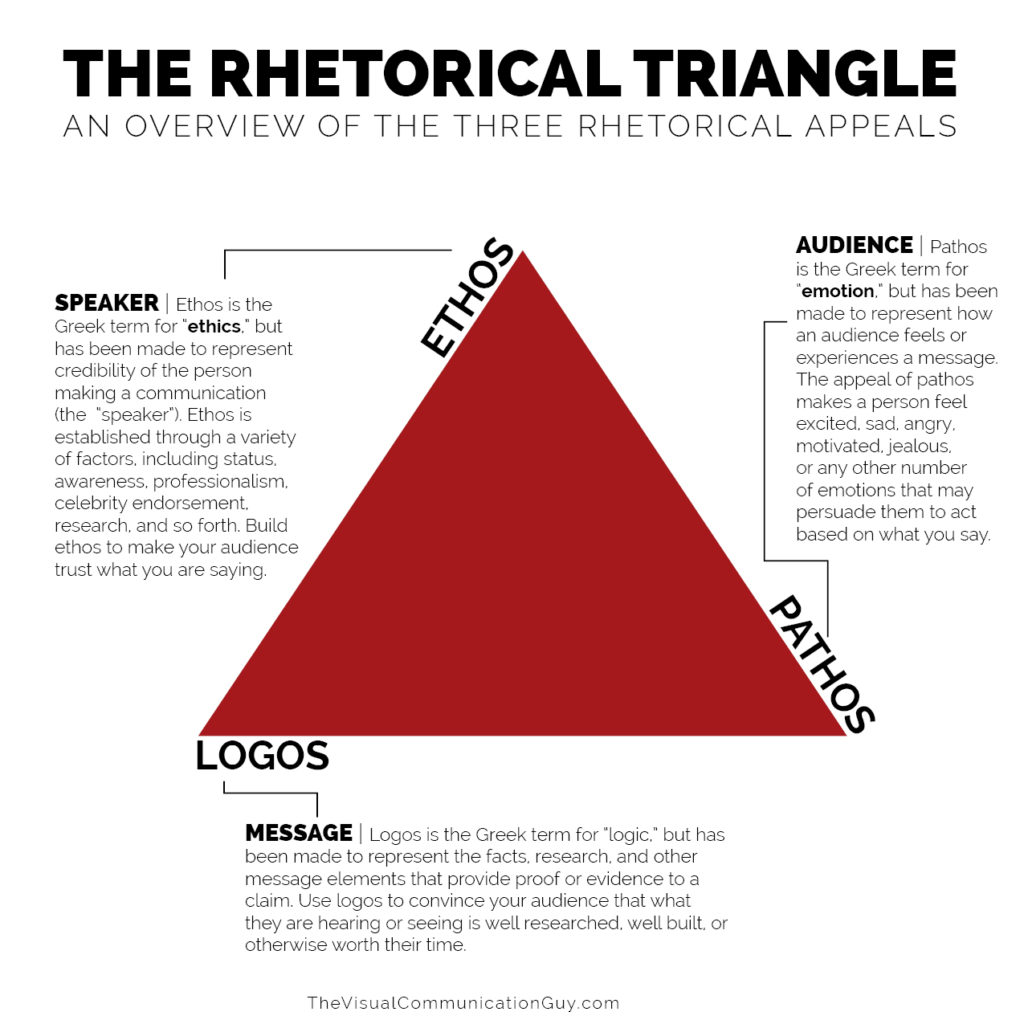When we present our arguments, whether oral or written, we try to be persuasive, the public needs to understand our point of view, even before accepting our arguments, that is rhetoric, getting others to accept our point of view and who better. To explain the rhetoric that Aristotle? The studies of Plato’s students have focused on rhetoric. Thus, Aristotle’s rhetoric consists of three fundamental aspects: the pathetic, the ethos and the logos.
In Aristotle’s rhetoric, the pathetic, ethos and logos are the three fundamental pillars: ethos appeals to ethics, the pathetic to feelings or emotions, and the logo to logic. Currently, these three aspects are seen as different ways of convincing the public. on a given subject, belief or conclusion. While each aspect is different from the others, knowing all three will help us engage the audience we’re targeting.
- Pathos means “suffering and experience”.
- In Aristotle’s rhetoric.
- This translates into the ability of the speaker or writer to provoke emotions and feelings in his audience; pathos is associated with emotion.
- Refers to appeal to the emotional side of the target audience; in short.
- The pathos seeks to sympathize with the public.
- When the speaker uses their values.
- Beliefs.
- And understanding.
- He moves the audience and communicates with them through a story.
Pathos is widely used when the arguments to be presented are highly controversial. Because these arguments often need logic, success lies in the ability to empathize with the public. For example, in an argument to legally ban abortion, we can describe babies as fragile. and innocent beings to evoke the sadness and concern of the public.
The second aspect, ethos, means character and comes from the word ethikos, which means morality and morality; for speakers and writers, ethos is made up of its credibility and identification with the public; the speaker must be trustworthy and respected as an expert in the field. For arguments to be effective, logical reasoning is not sufficient; content must also be presented effectively for it to be reliable.
According to Aristotle’s rhetoric, ethos is particularly important in awakening the public interest, the tone and style of the message will be fundamental in this regard; In addition, the announcer convinces the public that he is qualified to talk about it, how his or her character or authority can influence the public regardless of the message. For example, talking to an audience as an equal character rather than passive increases the likelihood that people will get involved and actively listen to their arguments.
Logos means word, speech or reason. It is the use of reasoning and reasoning, inductive or deductive, for the construction of an argument. In persuasion, logos is the logical reasoning behind the speaker’s statements. Logos refers to any attempt to appeal to the intellect, to logical arguments.
Deductive reasoning holds that “if A is true and B is true, the intersection between A and B must also be true. “For example, in the argument?Would that be true?because “oranges are fruits. ” Inductive reasoning also uses premises, but the conclusion is only an expectation and may not necessarily be true because of its subjective nature. For example, the phrases “Does Peter like comedy?”And, is this film a comedy, can you conclude that “Pedro is going to like this movie. “
In Aristotle’s rhetoric, logos were his preferred argumentative technique. In everyday life, however, everyday arguments depend more on pathos and ethics. The combination of the three is used to make testing more attractive and is the focus of strategy on focus teams. People who master them have the ability to convince others to take a certain action or buy a product or service.
Still, the pathetic seems to have greater influence today, populist discourses, which seek to vibrate without giving logical arguments, seem to have greater significance, the same goes for fake news or fake news, some lack logic, but the public accepts them for their great capacity for empathy. Knowing these three strategies in Aristotle’s rhetoric can help us better understand these messages that try to persuade us with lies.

